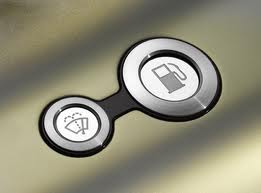Should You Listen To Customers?

An elegant solution.
I used to teach a research methods class for social sciences students. I emphasized that there’s a big difference between researching animal behavior and human behavior. Animals can’t talk so you have to observe them. The more closely you observe, the more you’ll discover.
People, of course, can talk. So we often listen to them. That can be a big mistake because what we say often doesn’t correspond to what we do. For instance, we overestimate our contribution to a team project. If we remember something vividly, we assume that it happens more frequently than it really does. If a task is enjoyable, we underestimate how long it lasted. If a task is onerous, we overestimate the time it takes. (It’s the theory of relativity: time moves slower when you’re with your relatives.)
By listening to customers, we’ll collect many of these distorted views of reality. If we bake these distortions into our product strategy, we’ll develop products that don’t match what people really do or even what they really want.
Steve Jobs famously said, “It’s not the customer’s job to know what they want.” I’ve always interpreted this to mean, “Customers can’t tell you what they want. They probably don’t know. But if you observe them closely, you can figure it out before they do.” Many people see Jobs as a great technologist. I see him as a great observer of human behavior.
I thought of this the other day when my car informed me that I needed to add windshield washing fluid. That meant I needed to open the hood. I open the hood so rarely that I forget how to do it. That meant that I had to find the owner’s manual to figure out how to open the hood to add the fluid.
For most of my life, I would have accepted that this is just the way things are. I wouldn’t have questioned it. I certainly wouldn’t have thought to tell a market researcher that what I really wanted was to add windshield fluid without opening the hood. Like Steve Jobs said, that’s not my job.
Now that I’m older and grumpier, though, I asked myself if there weren’t a simpler way to add windshield fluid. With a little research, I found that Volvo had already designed such a car. In 2004, Volvo presented a concept car designed by women. The designers observed human behavior and noticed that people open their car’s hood only to replace the windshield fluid.
So why, they asked themselves, design a car with a hood that opens? Volvo could build a simpler, less expensive, and stronger car by eliminating the hood opening. They could easily design a different way to add the windshield fluid (as in the picture). Owners could drive a safer, less costly car and meet their window washing needs more easily. It’s a win-win-win. (By the way, a mechanic can easily remove the entire front end of the car at the shop).
If you listen to customers, you may get incremental improvements to products that you already offer. If you want breakthroughs – and radical new products – you need to observe customers. It’s time to treat customers like animals and stop listening to them.
One Response to Should You Listen To Customers?
-
Pingback: Seeing With Your Eyes | Travis White Communications